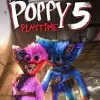Wicked, the groundbreaking musical that has taken the Broadway stage by storm, is far more than just a retelling of the classic story of the Wizard of Oz. Based on Gregory Maguire's 1995 novel, this enchanting tale explores the profound themes of friendship, love, and the perception of good and evil. Since its debut in 2003, Wicked has developed a loyal following and turned into a cultural sensation. This article explores the various elements of Wicked, including the plot and its memorable characters.
A Deep Dive into the Storyline
At its core, Wicked tells the story of Elphaba, the misunderstood green-skinned girl who is labeled as the Wicked Witch of the West. Her journey unfolds in the vibrant land of Oz, where she forms a close friendship with Glinda, a popular and bubbly blonde who epitomizes what society considers “good.” As the story unfolds, viewers are introduced to a new viewpoint concerning the legendary characters from Oz, prompting them to reconsider the conventional ideas of morality.
The Themes of Identity and Acceptance
One of the most compelling themes present in Wicked is the exploration of identity and the importance of self-acceptance. Elphaba’s struggle to embrace her unique appearance and abilities reflects a broader commentary on societal norms. From a young age, Elphaba is ostracized for her green skin, which symbolizes the broader challenge of accepting oneself in a world that often values conformity over individuality. Through her journey, Wicked advocates for embracing differences, making its message both relevant and powerful.
The Complex Relationship Between Elphaba and Glinda
The dynamic between Elphaba and Glinda serves as the emotional heart of Wicked. Initially, their relationship is characterized by contrasting personalities—Elphaba's fierce intelligence and moral conviction clash with Glinda's superficial charm and desire for popularity. As the story unfolds, however, their bond deepens, marked by moments of vulnerability and support. The evolution of their friendship invites audiences to reflect on the complexities of relationships, particularly how empathy and understanding can bridge even the widest of divides.
The Musical Elements that Captivate Audiences
Music is an integral part of Wicked's success. Composed by Stephen Schwartz, the score features numerous unforgettable songs that have captivated audiences worldwide. From the soaring anthem "Defying Gravity," which embodies Elphaba's quest for self-empowerment, to the more comedic numbers like "What Is This Feeling?" that showcase the contrast between the two protagonists, the music adds profound emotional layers to the storytelling. The power of Schwartz's melodies lies in their ability to resonate deeply, making the themes of the musical even more impactful.
The Visual Spectacle of the Production
From its exquisite set design to its vibrant costumes, Wicked is a visual feast. The production makes use of intricate sets that transport audiences into the mystical world of Oz. The application of color is essential, as the green tones linked to Elphaba starkly contrast with the softer colors surrounding Glinda. The costumes, designed by Susan Hilferty, serve to amplify the personalities of each character, reflecting their journeys while being visually stunning.
A Look at Iconic Characters
The characters in Wicked are complex and nuanced, defying the archetypal roles typically seen in fairy tales. Elphaba and Glinda are not the only significant figures; characters like the Wizard and Madame Morrible add depth to the story. The Wizard, initially perceived as a benevolent leader, is revealed to be flawed and manipulative, exposing the corrupt underbelly of power. On the other hand, Madame Morrible represents the often-hidden institutional pressures that can shape individuals' choices.
The Role of Friendship in Overcoming Adversity
Throughout the musical, the theme of friendship emerges as a critical element in navigating life's challenges. Elphaba and Glinda's bond is tested continuously, presenting audiences with a powerful exploration of loyalty, support, and sacrifice. Their relationship offers a compelling commentary on the idea that friendship can provide solace amid adversity, encouraging viewers to cherish and cultivate their connections.
Wicked’s Reinterpretation of Familiar Stories
Wicked is a prime example of how the reinterpretation of familiar narratives can breathe new life into established tales. By offering a fresh perspective on the story of the Wizard of Oz, Wicked encourages audiences to question preconceptions of good and evil. This reimagining has led to a broader discourse about moral ambiguity, encouraging a more nuanced understanding of characters traditionally deemed as villains.
The Impact of Wicked on the Theater Landscape
Since its debut, Wicked has significantly impacted the theater landscape. It has inspired a new generation of musical theater enthusiasts while also reviving interest in Broadway productions. The success of Wicked has paved the way for other adaptations of modern literature into stage productions, demonstrating that powerful storytelling, combined with vibrant music and visuals, has universal appeal.
The Cultural Significance of Wicked
Wicked’s cultural significance extends beyond its box office success. It has become a symbol of empowerment and resilience, resonating particularly with audiences who identify with Elphaba’s struggles. The musical fosters conversations around discrimination, personal agency, and the courage to stand up against societal expectations. These themes, presented through the lens of a fantastical tale, provide a unique platform for real-world discussions about equality and acceptance.
Exploring the Relationship with the Original Wizard of Oz
The connections between Wicked and the original Wizard of Oz are profound and serve to deepen the audience's appreciation for both narratives. While the Wizard of Oz is often seen through a lens of naive optimism, Wicked introduces a more complex, darker view of the world, showcasing the injustices and moral ambiguities inherent within it. This interplay invites viewers to revisit the familiar story with fresh eyes, revealing previously unseen layers of meaning.
The Fan Community and Fandom Phenomenon
The emergence of a dedicated fan community around Wicked has cultivated a vibrant culture of fandom. Enthusiasts engage deeply with the musical, sharing fan art, theories, and performances that celebrate their passion. The strong presence on social media underscores the musical's relevance and its ability to create a space for fans to connect, fostering friendships that extend beyond the theater experience.
Wicked on Tour: Reaching New Audiences
Wicked's national tour has played a pivotal role in expanding its reach to audiences outside of New York City. By staging performances in various locations across the United States and internationally, the musical has been able to touch the hearts of countless individuals who may not have otherwise had the opportunity to experience it live. The touring production maintains the same level of excellence as its Broadway counterpart, ensuring that the essence of what makes Wicked so enchanting is preserved.
Anticipating the Movie Adaptation
As anticipation builds for the cinematic adaptation of Wicked, fans eagerly await how the themes and performances will translate to film. The casting choices have generated much excitement, with audiences hoping that the magic of the stage can be captured on screen. As with any adaptation, there are challenges involved, but the fervent fan base supports the project, eager to see how this iconic tale will unfold in a new medium.
Wicked's Legacy in Musical Theater
The legacy of Wicked in the realm of musical theater is undeniable. Its themes resonate across different demographics, and its innovative approach to storytelling has encouraged a slew of new works to follow suit. Wicked has shown that musicals can tackle complex issues while still providing entertainment, setting a new standard for productions that dare to push boundaries. As new generations discover its timeless message, the legacy of Wicked will undoubtedly endure for years to come.
Exploring the Emotional Journey of Elphaba
The emotional journey of Elphaba is one of the most compelling aspects of Wicked. From her struggles within a society that rejects her to her ultimate declaration of independence, every moment is infused with depth. Audiences witness her triumphs and tribulations, forming a connection that transcends the stage. The emotional investment involved not only creates a memorable theater experience but also helps solidify Elphaba's role as a lasting emblem of strength and bravery.
The Significance of "Defying Gravity"
"Defying Gravity" is arguably one of Wicked's most iconic songs, encapsulating the themes of self-discovery and empowerment. Elphaba's powerful declaration of independence resonates with audiences, inspiring them to embrace their own uniqueness and challenge the conventional constraints placed upon them. The song's climactic moment, paired with a stunning visual display, creates an unforgettable theatrical experience that underscores the overall message of the musical.
The Future of Wicked in Popular Culture
Wicked’s influence on popular culture continues to grow, as its songs, characters, and themes permeate various forms of media. From references in other musicals to appearances in television shows, Wicked’s presence remains strong in contemporary conversations. As new artistic interpretations emerge, the essence of Wicked will likely inspire creativity and storytelling for generations to come, ensuring its place in the pantheon of theatrical masterpieces.
Screenshots
To download the app, you will get links to the Official Website and/or official digital markets.











